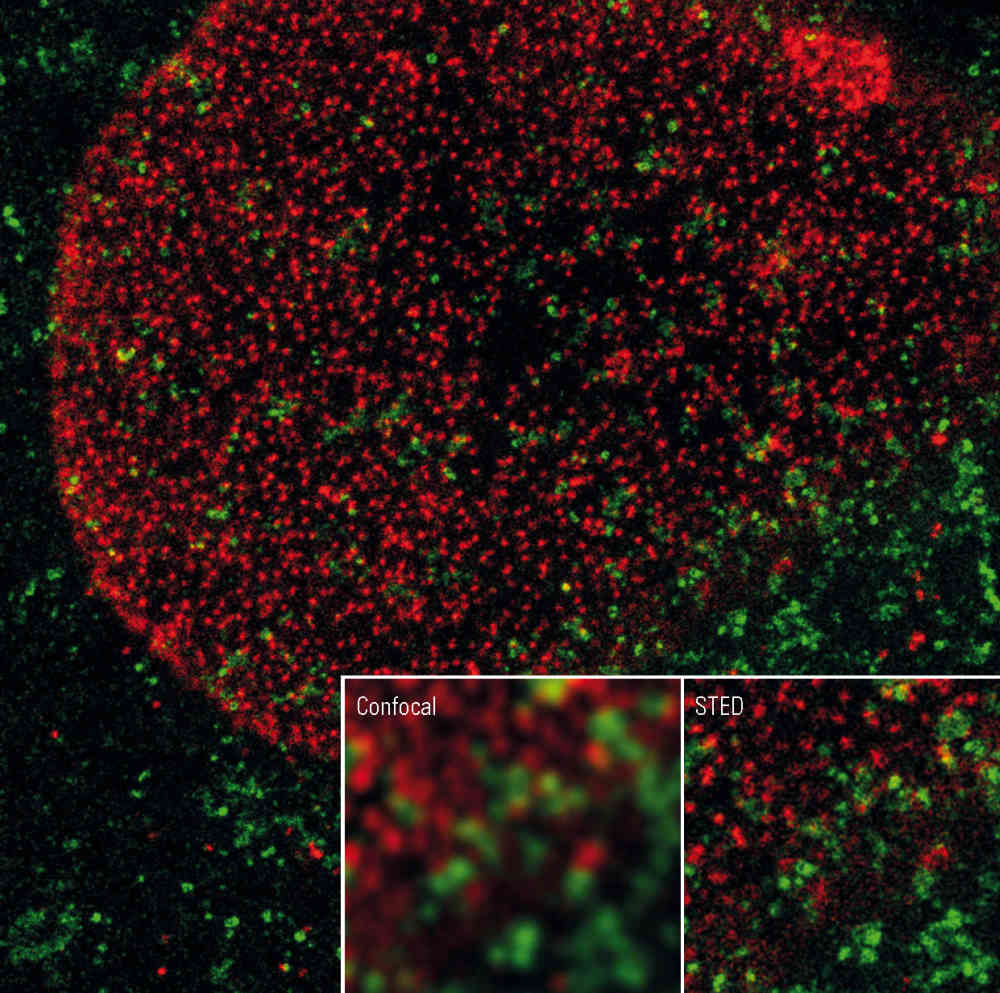WEBINAR: Super-resolved STED spectroscopy: New insights into molecular membrane dynamics
Date: Tuesday, July 10, 2018
Place: London 4:00 pm I Berlin 5:00 pm I Boston 11:00 am I San Diego 8:00 am
Speaker: Prof. Kees Jalink, Ph.D.
Registration: Register here.
More information: kopecky@pragolab.cz



Join our free webinar
Super-resolved STED spectroscopy: New insights into molecular membrane dynamics
Molecular interactions are key in cellular signalling. They are often ruled or rendered by the mobility of the involved molecules. We present different tools that are able to determine such mobility and potentially extract interaction dynamics. Specifically, the direct and non-invasive observation of the interactions in the living cell is often impeded by principle limitations of conventional far-field optical microscopes, for example with respect to limited spatio-temporal resolution. We depict how novel details of molecular membrane dynamics can be obtained by using advanced microscopy approaches such as the combination of super-resolution STED microscopy with fluorescence correlation spectroscopy (STED-FCS). We highlight how STED-FCS can reveal novel aspects of membrane bioactivity such as of the existence and function of potential lipid rafts, and how the new FALCON technology eases such measurements.
